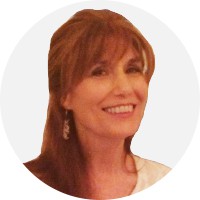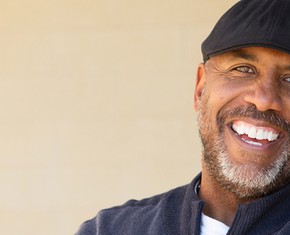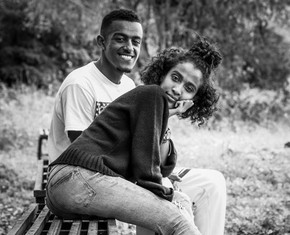The views expressed in our content reflect individual perspectives and do not represent the authoritative views of the Baha'i Faith.
For the most part, we all take on a job or a profession at some point in our lives. If we’re lucky, we pursue a true inner calling and our work becomes a joyous, fulfilling experience.
Unfortunately, though, some of us must do everything we can to see the best in an occupation that we don’t exactly love.
In either case, many people seem to identify themselves with their jobs. One of the first things a new acquaintance will ask you is, “What do you do?” as if your job is the most important part of who you are. We might answer, “I am a nurse,” “I am a lawyer,” “I am a stay-at-home mom,” or “I am a secretary,” etc. But a job does not define who we are—it is only one expression of our complex and multi-faceted selves.
If you ask a child upon first meeting him the same question, “What do you do?” he might answer something more along the lines of, “I swim, and I color and I play with my dog and I love to help my mom make cookies!” Most children recognize that they do not need to define themselves by one pursuit in life.
The Baha’i teachings remind us that we all have many talents and faculties:
The Great Being saith: Regard man as a mine rich in gems of inestimable value. – Baha’u’llah, Gleanings from the Writings of Baha’u’llah, pp. 260
When we get older we start to define ourselves by our jobs, sometimes to the point where we become boxed in. The problem with limiting our identity to one occupation is that we put all our “self-worth eggs” into one basket. But what happens if something changes and we can no longer perform in our career—or our career no longer performs for us?
In the case of my daughter, she has always been a natural teacher. Teaching high school is a terrifying prospect to many, but for her, it is pure bliss. She can’t wait to go to work each day. However—if for some reason she can’t work it makes her miserable, and she questions her value.
The same premise applies to any label: wife, daughter, friend, or parent. As a mother who home-schooled my children, my life revolved around them for years. When they left, so did my self-worth—because I had it all tied up in them. It wasn’t until I opened myself up to what I was capable of outside my children that I regained my joy and purpose.
The problem with identifying your career with “who” you are, is that if it is taken away for some reason, where does that leave you? For artists, writers, actors, or those in the public eye, it is especially precarious to associate their identity with what they do or with their popularity. If you are on top of the charts, does that make you better than someone else? If so, what happens to you when you fall from grace?
I used to work with developmentally handicapped youth. Many of them would go on to be capable of only menial labor, if that. However, there was no question that they were just as valuable as any other individual. Just their “being” was a lesson in love, humility and kindness. I could write volumes and never come close to the contribution they’ve made to this world. These sweet souls never confused their job with who they are—they were just pure love, and their purpose was to reflect God’s grace.
Define yourself radically as one beloved by God. This is the true self. Every other identity is illusion. – Brennan Manning
You realize your true identity as consciousness itself, rather than what consciousness has identified with. That’s the peace of God. The ultimate truth of who you are is not I am this or I am that, but I Am. – Eckhart Tolle
Beyond our egos and our professions we are all a wonderful combination of God-given talents and abilities. One profession or label does not make up all of who we are. Perhaps one day we will retire, or be otherwise unable to work. This shouldn’t take away our identity in the least. Instead it should open up new doors of exciting possibilities.
Most of us have only scratched the surface of our potential. With so much to offer this world, we should never limit ourselves, or the value that just our essential presence contributes. God’s image is engraved upon us and we all make a contribution to the world. So the next time someone asks, “What do you do?” perhaps you might answer, “I am a nurse, as well as an artist, a singer and a mentor, but above all else, I am a lover of humanity and a believer in our oneness:”
… in this age of splendours, teachings once limited to the few are made available to all, that the mercy of the Lord may embrace both east and west, that the oneness of the world of humanity may appear in its full beauty, and that the dazzling rays of reality may flood the realm of the mind with light. – Abdu’l-Baha, Selections from the Writings of Abdu’l-Baha, p. 59.
You May Also Like
Comments

















1) To know God and to attain His presence
2) To acquire virtues ... 3) Carry forward an ever advancing civilization So I am trying to keep this points at the forefront of my thoughts